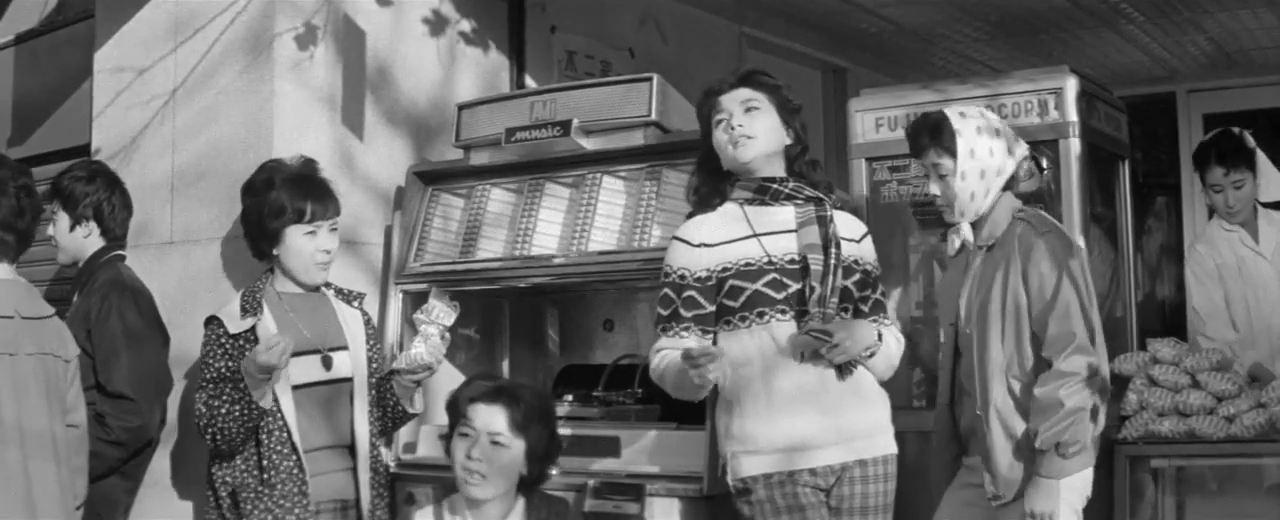“You'll feel better soon. Once you're used to the mask, you'll be a new man — one with no records, no past. A mind invisible to the world.”他人の顔 [Tanin no kao / The Face of Another] (Hiroshi Teshigahara, 1966)
Jan
3
Tutankhamun's tomb
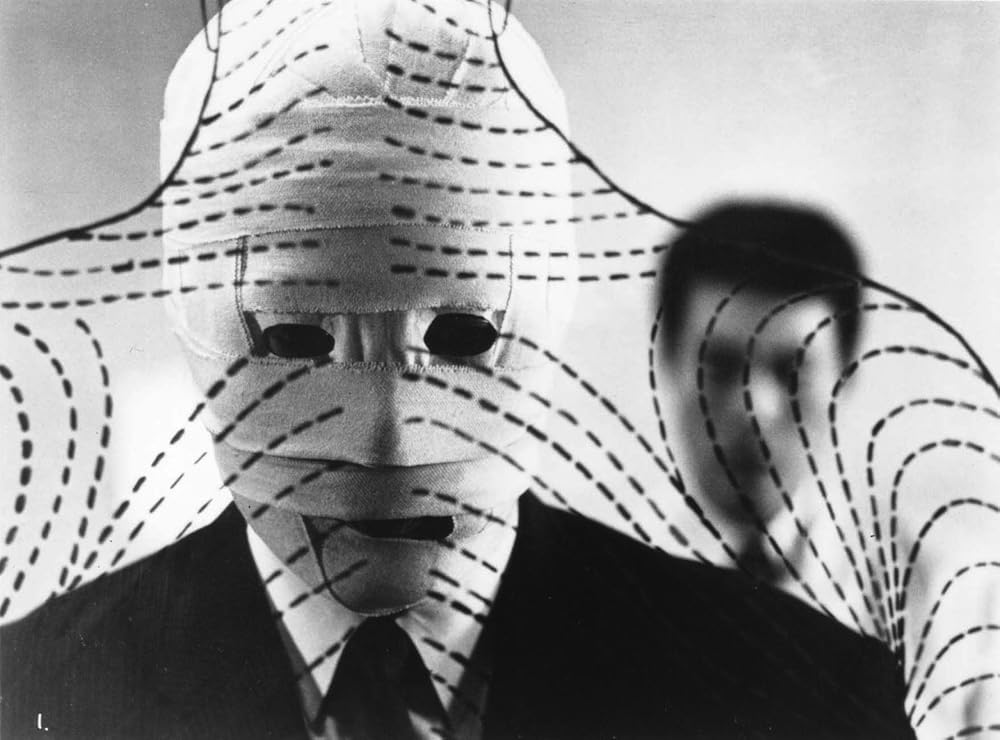
Mr. Okuyama (Tatsuya Nakadai). DP: Hiroshi Segawa.
Bandages for that day in 1924 when Howard Carter came across Tutankhamun's sarcophagus.
– psychiatrist
japan
浪華悲歌 [Naniwa erejī / Osaka Elegy] (Kenji Mizoguchi, 1936)
Dec
15
International Tea Day

A woman in kimono sits at a low wooden tea cabinet. It holds a small tea pot and other utensils. The traditional setup is broken in the background with contemporary Western furniture. She's smoking. DP: Minoru Miki.
Something with tea for International Tea Day.
荒野のダッチワイフ [Kōya no dacchi waifu / Dutch Wife of the Wasteland] (Atsushi Yamatoya, 1967)
Dec
13
ice cream
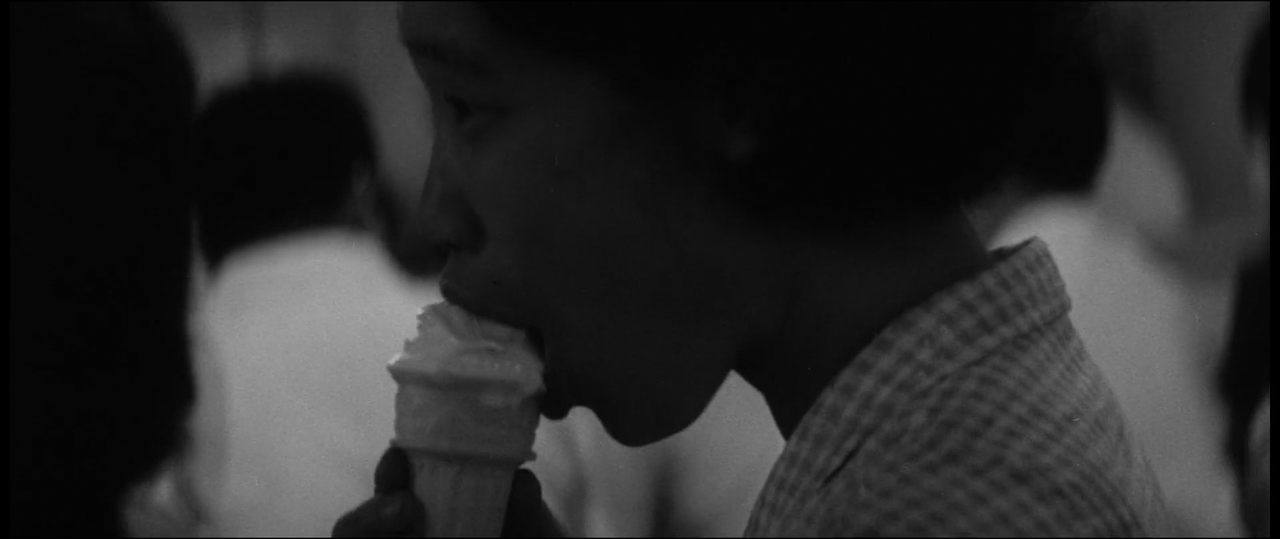
A young woman in profile, almost a silhouette, eats ice cream. DP: Hajime Kai.
狼やくざ 殺しは俺がやる [Ōkami yakuza: Koroshi wa ore ga yaru / Yakuza Wolf: I Perform Murder / The Lone Assassin] (Ryūichi Takamori, 1972)
Jul
13
lollipops

One of the gang members, immaculately dressed in all-black and small like a child, walks along a seedy street holding an oversized rainbow lollipop. DP: Yoshio Nakajima.
鴎よ、きらめく海を見たか めぐり逢い [Kamome-yo, kirameku umi o mitaka/meguri ai / Oh Seagull, Have You Seen the Sparkling Ocean? An Encounter] (Kenji Yoshida, 1975)
May
30
Pokkī

A young woman in a red-and-white striped sweater (Yōko Takahashi) leafs through fashion magazines strewn out before her on a grass-green carpeted floor while chewing a Pokkī. On a small stove close to her a fire truck red coffee pot. DP: Kōshirō Ōtsu.
少年 [Shōnen / Boy] (Nagisa Ōshima, 1969)
May
6
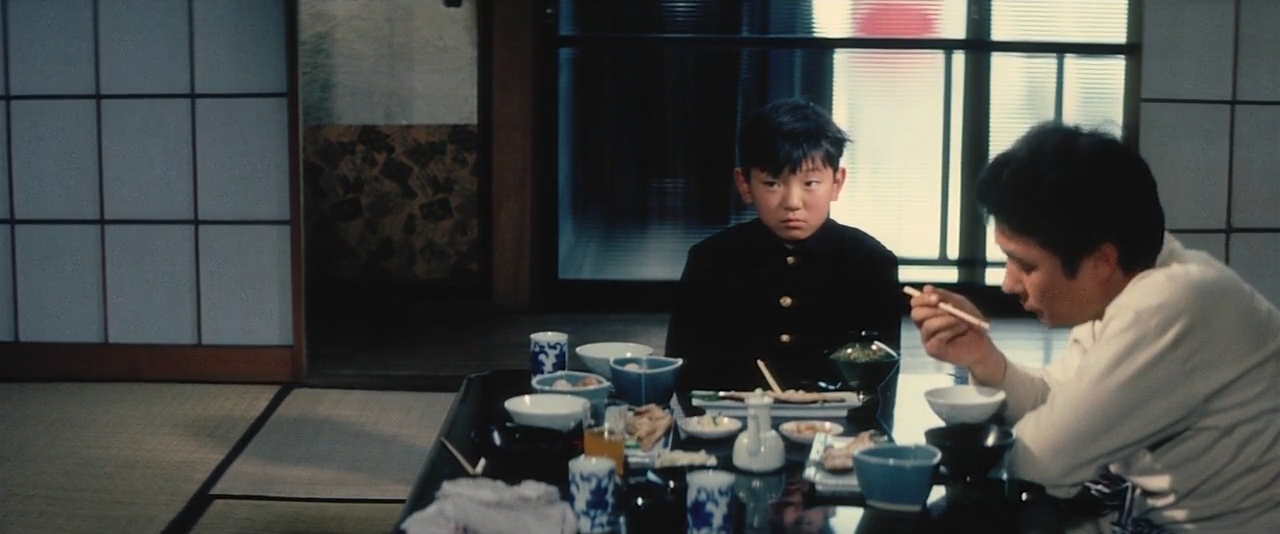
The boy in his school uniform (Bin Amatsu) at a table in a traditional Japanese room with his meal untouched. A man eats next to the kid who glances at someone or something offscreen. The table is set for three. DPs: Seizō Sengen & Yasuhiro Yoshioka.
“Empires, the past – they're beyond me! Will things change for the better? Will bums like these disappear? And the slums too? Come on. Tell us!”太陽の墓場 [Taiyō no hakaba / Grave of the Sun / The Sun's Burial] (Nagisa Ōshima, 1960)
Mar
31
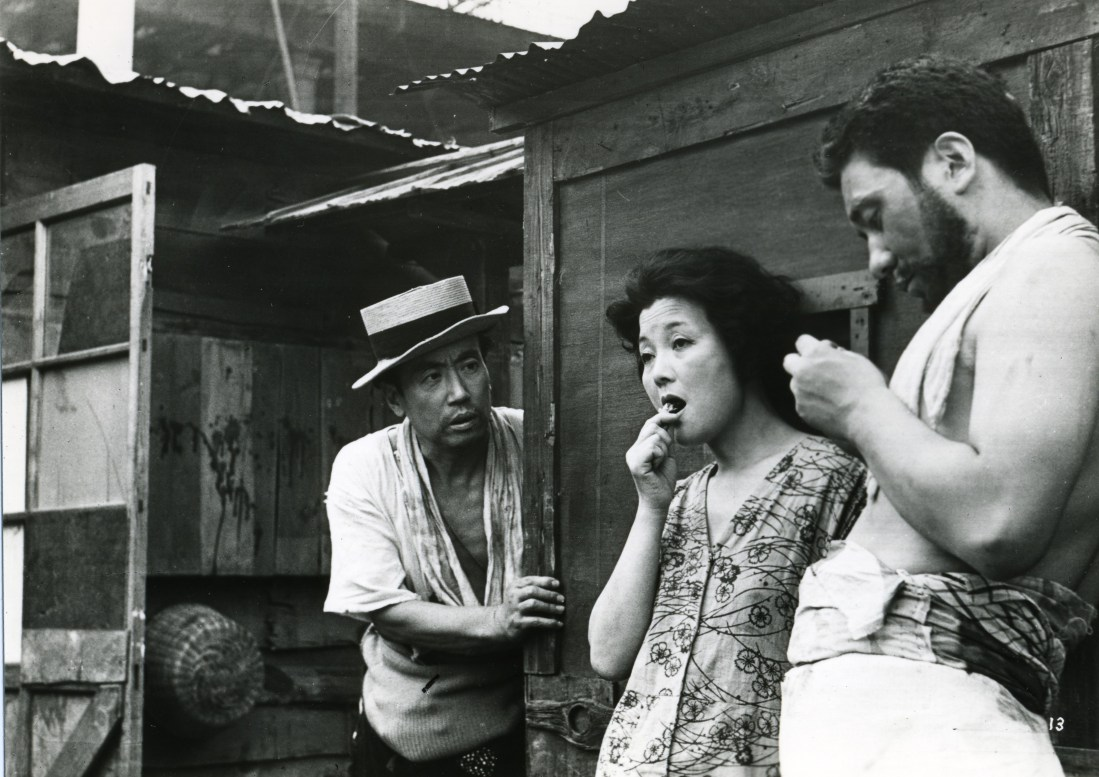
An empty-looking woman eats something while a scrawny man in a pork pie hat and dirty shirt eyes her. Next to the woman a bulking bearded guy, cleaning his nails. DP: Takashi Kawamata.
– Hanako
火まつり [Himatsuri / Fire Festival] (Mitsuo Yanagimachi, 1985)
Feb
16
water

A man drinks from a small stream like an animal. DP: Masaki Tamura.
– So what is your goal in life then? – Satisfaction of the present. The sword, and nothing else.剣 (小説) [Ken / The Sword] (Kenji Misumi, 1964)
Dec
29
Tick Tock Day
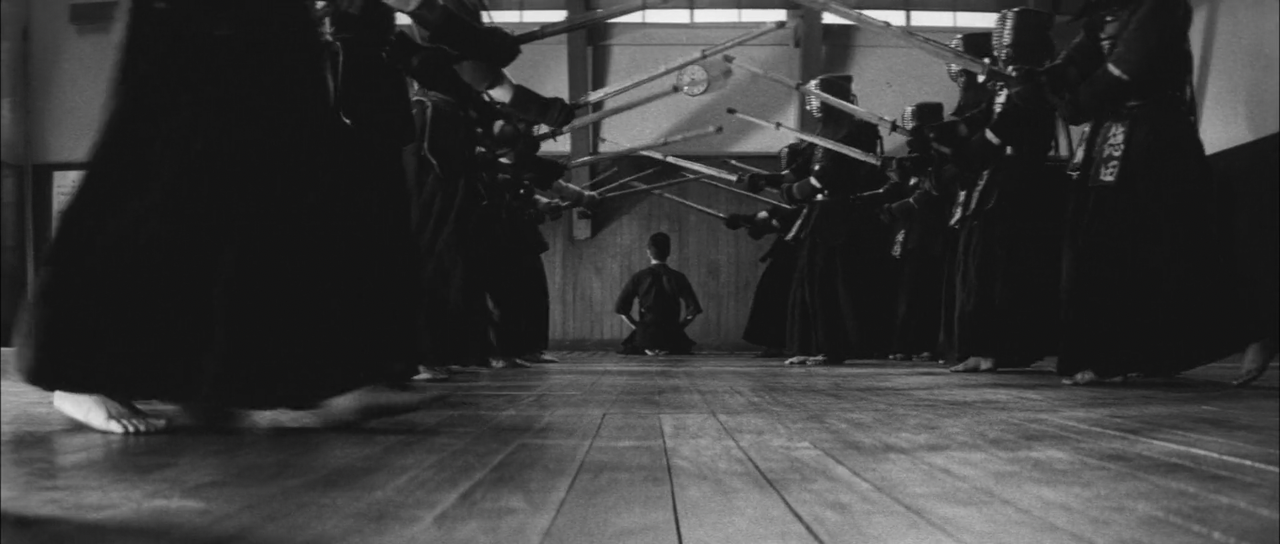
One of the kendōka kneeled on the floor in gruelling punishment faces a clock on the wall, while the other students continue their training. DP: Chikashi Makiura.
A clock face on Tick Tock Day (USA)
After World War II, the Japanese martial arts of #kendo was banished by the occupying forces in an attempt to “remove and exclude militaristic and ultra-nationalistic persons from life”. With that in mind, it makes complete sense that nationalist author and former kendo practitioner Yukio Mishima wrote a short story – Sword, originally published in literary magazine Shincho in 1963 – about the art.
Both the story and Kenji Misumi's 1964 film adaptation follow arrogant kendo student Jiro, played by sublime kabuki actor Raizō Ichikawa who also appears in an earlier Mishima adaptation, 炎上 [Enjō / The Temple of the Golden Pavilion / Conflagration] (1958).
